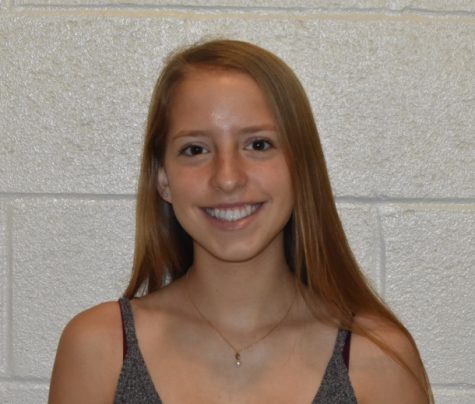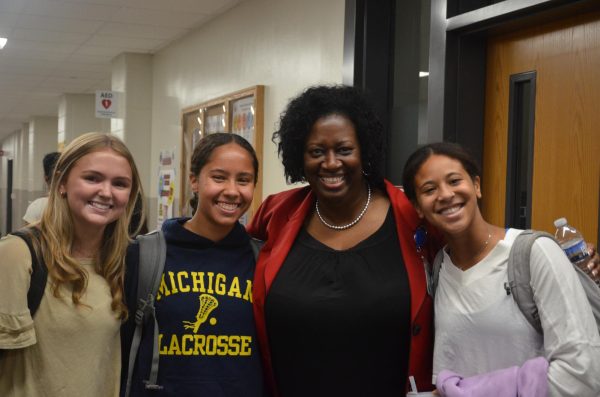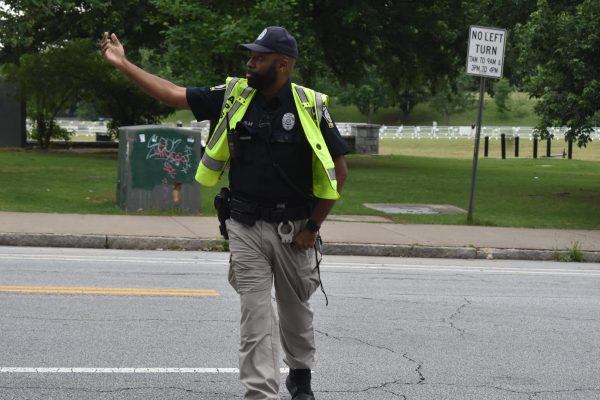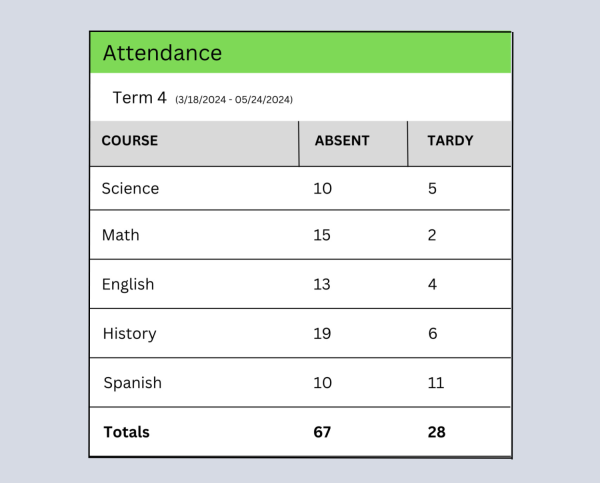Lack of semester-long classes complicates schedules
A Southerner survey of 350 Grady freshmen, sophomores and juniors on which semester-long class they would most want to take/be most beneficial.
When Jazmin Cruz got her schedule for the start of her senior year, nestled in between Advanced Placement (AP) and art classes was a semester long course she never signed up for — SAT Prep.
“Since this year I didn’t take a language class, I had a whole class slot open,” Cruz said. “I didn’t turn in my class registration form last year early enough, so I got put into random electives and SAT Prep was one of them.”
Cruz had already taken the SAT and done well, so she had no need for the classes. However, she found that there weren’t many other options for her.
“I tried to get out [of SAT Prep], but the only other class that period was music theory,” Cruz said. “I thought, you know, [SAT Prep] can’t be that bad. I was very unmotivated in it. I wish there was a study hall. I really would’ve used that last year to do college applications and other homework.”
This is a common story for many Grady students. Because Atlanta Public Schools requires students to take 1.5 years of health and physical education classes, as well as 3.5 social studies courses, one-semester courses are necessary to fill the gaps formed by courses required for graduation.
Grady’s current offerings for one-semester courses that are not required for graduation include various P.E. courses, Sociology, Psychology, Advanced Composition, U.S. and Global Affairs, as well as Current Issues. However, these options often don’t appeal to students, and they instead search for year-long classes to switch into.
“I talked to the chorus teacher and switched into the chorus class after a semester of P.E.,” senior Grace Semler said. “That’s like the only year-long class you can switch into after half a semester and be okay.”
Semler said the other one-semester classes that she could’ve switched into were uninteresting.
“It’s a waste of time to just have one semester of a class you want and a semester of one you don’t,” Semler said.
Lee Pope, the head of the Social Studies Department and AP U.S. History teacher, has been pushing for a greater variety of social studies elective, one-semester courses for a while.
“I’m trying to push for a Women’s Studies course. I still am looking for a curriculum for someone to teach it,” Pope said. “We are teaching a new Ethnic Studies class next year, which will basically be the reteaching of American history from the African-American perspective.”
Pope cannot foresee himself being able to teach any of the one-semester classes he’s interested in because of the high influx of students into A.P. U.S. History.
“I don’t know if I’ll ever have [new class] spaces again,” said Pope. “Unless somebody comes along and teaches AP U.S. History with me, I don’t know.”
One of the challenges of developing a semester-long course is setting a curriculum.
“You have to first see if there’s a curriculum with the state, if one is already written,” Pope said. “Sometimes, you have to kind of manipulate and get around it. Years ago, we had a social studies course called ‘Humanities.’ There was no curriculum; you could basically just design it, and drop in what you wanted. Social studies is so wide open, and there are so many possibilities for what to teach.”
Mary Van Atta, the teacher of the semester-long Sociology course, has to navigate rewriting the statewide curriculum for year-long Sociology to fit her one-semester course.
“The standards really are designed for a year-long class, so there’s no way I can get through them in a semester-long class,” Van Atta said. “Basically, I treat the class as a very general intro to sociology. I try to make it engaging because it’s not a class a lot of students chose for themselves. I try to hit some of the more interesting [standards] for the students.”
Because most semester-long courses are not required for graduation, teachers do not emphasize certain standards to prepare students for the end of the year Milestones tests that count as 20 percent of students’ grades. Van Atta teaches U.S. History, which has a Milestones exam, and she finds more flexibility in teaching a one-semester course.
“With U.S. History, we have to hit marks on the way, and we have so much information to get through,” Van Atta said. “With an elective class, I don’t feel the pressure from statewide tests, so it’s kind of fun in that respect. You can be more easy-going.”
Anya is a senior at Grady High School. She's excited to edit the news section this year and learn more about the Grady/Atlanta community through writing!

Anna Tischer is a third year staff member on the Southerner and a senior in the graduation class of 2019. She is currently the online managing editor and...







